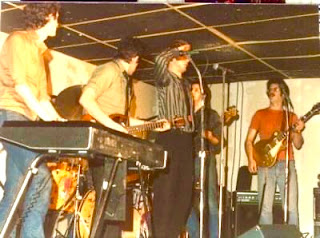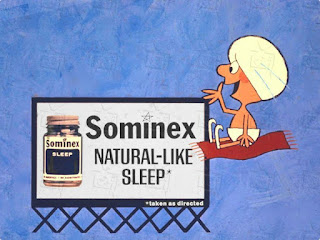All the young girls love Alice.Old men too.
Even old men named Alice.
Last night I went down a rabbit hole, a genealogical rabbit hole. I know friends who have researched their history and families and genealogy, and I have always had a vague interest in learning more about my family.
My family, my direct family, i.e. Mother, Father, siblings, always seemed to NOT want to know about family. We rarely discussed relatives, except to hear my parents speak of brother or sisters who they did not get along with, or infrequent remembrances of their upbringing, stories about my grandparents, cousins. It’s not that we didn’t talk about them, we just didn’t really talk about them much.
As a child I was not allowed to go to funerals, as funerals were not for children, so said my Mother.
She would sometimes speak of her father, who died four years before I was born. He was a customs agent, which was handy as they lived close to the US - Canada border in White Rock. Years later, I would move to White Rock with my wife and daughter, living in my wife’s father’s white house, buying half the house from his ex-wife, and taking care of my father-in-law who was dying of cancer.
When my Mother was a child, the Peace Arch was built, with the names of the school children in White Rock and Blaine inscribed inside the arch. My Mother’s name is in there. I have always wanted to stop and see this, but in my 64 years, so far I have yet to stop and actually get out of the car.
Her father had been in the War, First World War I assume, and he lost an eye, so he had a wooden eye, which he would sometimes take out at the dinner table to charm or scare the children. These are the stories I grew up with.
My Nana Pete, who’s real name was Helena, why they called her Pete I am not sure, lived with us for a time. She was a tall and regal woman, not unlike the Queen, I imagined. Before she came to live with us, we would visit her in her apartment in New Westminster, in the Royal Towers. She would serve us canned strawberries on cottage cheese, and crab or shrimp sandwiches on white bread, and would bring out from her freezer her lemon loaf, which had the densest crumb, and a sweet lemony glaze.
I was speaking with my second oldest brother the other day, and his wife came on the phone, and she asked a few questions about our family, as she had been doing research into her family.
When my parents were alive, they gave each of their children a photo album, which had a family tree.
This was the first real acknowledgement of our genealogy. There are names but not so many dates, but probably enough to begin a search, if one was so inclined. My sister- in- law was curious why the tree was a bare as it was of details.
I said, did you know our grandfather on my Dad’s side had a a first wife, before our Grandma Bea? She died about a year after they were married, around the time of the Spanish Flu. This comment raised more questions about my Grandpa Russ, and his life and brothers and sisters, how his parents died when he was a teenager, and he had to work to support his family as a teenager. I remember stories of him being called up in the army, and asked to fire upon striking workers, and he refused as one of the striking workers was his brother, and how he was then kicked out of the army. Since my father was born on Vancouver Island, my assumption is that this incident was probably the Cumberland strike.
So here I was on Sunday night, just before I went to bed, looking up my grandparents on the internet.
I found my Grandpa Russ and his headstone, along with my Grandma Bea. I found my Grandfather Joseph, and my Nana and noted he was buried in Victoria. Most of these accounts did not mention my own parents, just the grandparents.
And here is the rabbit hole part…my great-grandparents including my Great grandfather Joseph, same name as his son.
I have deleted last names here.
Joseph was born in Royston, Hertfordshire, in 1795. He studied at St. Peter’s College, Cambridge, and upon leaving University became a student at the Middle Temple, London, where he began his legal studies.
He started his career providing legal advice throughout Norfolk, but was soon forced to retire due to fatigue and ill health. He then established a stationary practice at Palace Court, London, but resigned following a dispute with the court.
He was a descendant of a Huguenot family. Huguenots were French Protestants persecuted by their Catholic government in the 16th and 17th centuries. Most, like his ancestors, were forced to flee France. As such, in 1827, He published The Laws affecting Protestant Dissenters. The book was very well received.
It was around this time that He addressed a letter to Lord Dacre, MP for Hertfordshire, regarding the freedom of slaves. While The Abolition of the Slave Trade Act, passed by Parliament in 1807, banned trading slaves it did not ban the act of slavery itself. His letter was published and met with general approval, receiving praise in a speech made by the Prime Minister, George Canning, in Parliament.
The publication of this letter, importantly, led to him meeting Zachary Macaulay, a leading figure in the campaign against slavery. Macaulay was the founder and editor of a monthly publication called The Anti-Slavery Reporter and helped establish The Society for the Mitigation and Gradual Abolition of Slavery in 1823. This became the Anti-Slavery Society in 1839 and still operates today as Anti-Slavery International. It is the oldest international human rights organisation in the world. Meeting Macaulay was his first step into the anti-slavery movement.
In 1827, He joined the Anti-Slavery Society in London and for many years devoted his time and attention to obtaining freedom for slaves throughout the British Empire. He wrote or edited most of the Society’s publications and papers, sat on numerous committees and later became their official legal advisor.
The Slave Emancipation Act was passed in 1833. This legally gave all slaves across the British Colonies their freedom, but it was not immediate or automatic. Instead, there was an interim period of apprenticeships, during which time enslaved people were made to work as unpaid apprentices for their masters. The apprentice was entitled to maintenance and food allowances or, if food was not provided, to sufficient land and time to grow their own.
However, it soon became apparent that the Act was violated and open to exploitation. In fact, claims were made that the treatment and working conditions of apprentices were even worse than those of slaves. He was at the centre of the legal battle to address this and was tasked with collecting and analysing evidence from all sides. He wrote a report called Negro Apprenticeship in the British Colonies.
The subject of black apprenticeship caused strong conflict of public opinion but the Anti-Slavery Society thought the system worked badly and should be abolished. He visited Macaulay to consult his views on what steps should be taken. Macaulay advised Him to take the matter ‘professionally and perseveringly’.
From that time until the final abolition of slavery, He dedicated his life to the subject, collecting and examining documents in an effort to prove the existence of violations of the law. His findings were presented to the House of Commons in 1835 and a Committee was established by Parliament to investigate. He was appointed as a representative of the Society, as was Sir John Jeremie who, unlike Him, had a thorough knowledge of the practical workings of slavery in the colonies. Together they provided sufficient proof of both legal and practical abuses. The investigation was conclusive and Parliament was forced to abolish apprenticeships in 1838, three years before the date set by the Emancipation Act.
After this final liberation of slaves in the British Colonies, he turned his attention to supporting efforts to end slavery internationally. He joined The Society for the Extinction of the Slave Trade and for the Civilisation of Africa, founded by Sir Thomas Fowell Buxton. Prince Albert was its president. This was the first time royal approval had been given to the anti-slavery cause. He was responsible for writing the proceedings of the Society’s first public meeting in 1840.
By 1841, the Society had organised the Niger Expedition to establish farms, encourage legitimate trade and commerce, and set up Christian missions in Africa. The expedition ended in disaster; the farms failed, many lives were lost from disease and the Society disbanded.
He maintained good friendships with leading members of the Anti-Slavery Society and took an active role in preparing for a second expedition, the civilisation of Central Africa. Following the Niger Expedition, most were unwilling to show support for another. He was one of the few who strongly recommended it and he supplemented the Government grant for shipbuilding, contributed to the expenses of the Society and volunteered to prepare the report. The second expedition was considered a success and its example, aided by subsequent expeditions, was actively applied in various parts of the African continent.
Despite his best efforts, He was not without fault. In his quest to abolish slavery and bring peace to Africa, he believed, like most of western society at the time, that the only complete cure was the introduction of Christianity into Africa. He said in a speech to the Society that ‘the substitution of our pure and holy faith for the false religion, idolatry and superstitions of Africa is, in [the Society’s] firm conviction, the true ultimate remedy for the calamities that afflict [Africa].’ Unfortunately, the Society’s missions led to the eradication of many ancient African beliefs and a forced teaching and acceptance of Christianity.
Since the initial aim of the Anti-Slavery Society had now been obtained they began the examination of colonial law, with a view to prevent further oppression. For this, He was appointed the senior official. He published a pamphlet about the principles on which future free men of the colonies should be governed. These ideas were received with praise by the House of Lords and, with some alterations, successfully passed. Despite opposition in the Commons, which blocked some of its stricter regulations, the Slave Trade Act of 1839 added a lot of security against the inhumane trafficking of slaves.
Following the success of the anti-slavery cause, He was advised to retire from professional life on medical grounds. In 1845, he accompanied members of his family to Italy and from there went on to Egypt and Syria, visiting many of the iconic landmarks in the East. He wrote about his trip in Recollections of Travels in Italy and the East, published in 1850. It was on his return from this tour that He brought to England the water from the River Jordan which, at Queen Victoria’s request, was used at the baptism of her daughter, Princess Helena.
His other interests included antiquities and he contributed various research papers and reports to the Royal Society of Antiquaries and the Archeological Institute. He returned to Royston, taking permanent residence in his hometown again, and made investigations of Royston’s heritage.
In 1852, He made a careful examination of Royston Cave, assisted by his friend, Edward Nunn, who was the curator of Royston Museum at the time. They also partially excavated it. His report was initially presented to the Royal Society of Antiquaries and was later published in his book The Origin and Use of The Royston Cave, for which He is now most famously remembered.
In his book, He concluded that Royston Cave was a Roman construction, built towards the beginning of Christianity, and, at a later period, was used as a Roman tomb. He suggested that most of the carvings and decorations were made later, perhaps around the time of the Crusades, and that it was then converted into a private chapel to which a hermitage was probably attached.
He was subsequently elected a Fellow of the Society of Antiquaries of London for his historical and archaeological research.
As a character, He never tended to engage in politics directly and generally preferred to maintain a low profile, only entering debate on subjects he felt strongly about. He often refused payment for his work, rarely signed his name to publications and refused two positions offered to him by the Government in recognition of his services to the liberation of slaves. In fact, it was not until the mid 1900s, when his papers were presented to the National Library of Jamaica, that his anti-slavery efforts became known.
With the exception of visits to Europe, He continued to live in Royston until his death. Although he suffered with his physical health, he remained mentally active. After a short battle with bronchitis, He died at The Banyers House on Melbourn Street on 6 June 1866, at the age of 71. He is buried in his family vault at Royston Parish Church.
A rabbit hole is defined as a metaphor for something that transports someone into a wonderfully (or troublingly) surreal state or situation.
As a metaphor for our online behavior, the rabbit hole has an advantage those other fictional portals lack: it conveys a sense of time spent in transit. In the original story, Alice falls for quite a while — long enough to scout out the environment, grab some food off a passing shelf, speculate erroneously about other parts of the world, drift into a reverie about cats, and nearly fall asleep. Sounds like us on the Internet, all right. In the current use of “rabbit hole,” we are no longer necessarily bound for a wonderland. We’re just in a long attentional free fall, with no clear destination and all manner of strange things flashing past.
Kathryn Schulz the New Yorker





